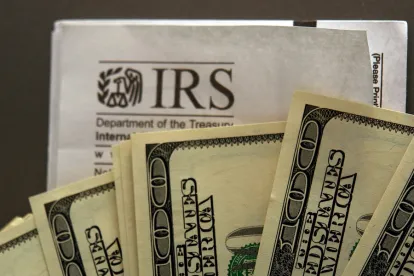The new tax law, known as the Tax Cuts and Jobs Act, allows states, the District of Columbia, U.S. possessions, and Puerto Rico to designate Qualified Opportunity Zones to encourage new capital investment in low income census tracts by allowing a taxpayer to defer eligible gain by investing in a Qualified Opportunity Zone. Each Qualified Opportunity Zone exists until the December 31 on or after the 10th anniversary of its designation. (See our e-alerts addressing how opportunity zones are designated and the Treasury's expanded list of eligible opportunity zones).
The Opportunity Zone tax incentives are designed to encourage investors to redirect gain from prior investments into investments in Opportunity Zones. Electing taxpayers will be able to defer, and in some cases permanently exclude, certain gains by investing in a Qualified Opportunity Fund. To be eligible, within 180 days of a sale or exchange, a taxpayer must roll-over gain into a Qualified Opportunity Fund and the Qualified Opportunity Fund must use that cash to purchase Qualified Opportunity Zone Property. A Qualified Opportunity Fund is a corporation, LLC, or partnership organized for the purpose of investing in Qualified Opportunity Zone Property that satisfies certain other rules set forth below.
The Qualified Opportunity Zone tax incentives build on incentives provided under the New Markets Tax Credit (NMTC) program and prior capital gains exclusion programs for investments in federally-designated enterprise zones, empowerment zones, and renewal communities. Unlike the NMTC program, however, there is no national limitation on the amount of gain that can be deferred or excluded under this program. Many of the specifics related to the investments and the parameters for the tax relief will need to be clarified by the IRS and the Community Development Financial Institutions Fund (CDFI Fund), which are jointly administering the Qualified Opportunity Zone program. Ballard Spahr will monitor guidance and provide additional updates as guidance is released.
What are tax benefits of a roll-over investment in a Qualified Opportunity Fund?
A taxpayer may elect to defer gain from a sale or exchange to an unrelated person of any property—including stock, partnership interests, real estate, property used for personal purposes, etc. — (Eligible Gain). Although the Code does not limit this benefit to capital gains, the Senate Committee Report states that the deferral is available for capital gains.1This issue will require clarification from the IRS. To defer Eligible Gain, the taxpayer must reinvest all or part of its Eligible Gain in a Qualified Opportunity Fund within 180 days of its sale of the property producing the gain and elect to defer gain that is rolled-over. The method for making that election is unclear and will require clarification. Any Eligible Gain that the taxpayer does not invest in a Qualified Opportunity Fund must be recognized and, in contrast to like-kind exchanges, only the amount of the Eligible Gain must be reinvested in the Qualified Opportunity Fund, not all of the proceeds from the sale of the property that produced the Eligible Gain.
Temporary Deferral
-
If the taxpayer timely invests in a Qualified Opportunity Fund, its Eligible Gain may be deferred until the earlier of the taxpayer's disposition of its Qualified Opportunity Fund investment or December 31, 2026 (the deferral period). At the end of the deferral period, the taxpayer must include in income the excess of (A) the lesser of (i) the Eligible Gain the taxpayer rolled-over or (ii) the fair market value of the taxpayer's Qualified Opportunity Fund's investment as of the end of the deferral period over (B) the taxpayer’s basis for the Qualified Opportunity Fund investment (the Recognition Amount).
Deferral and Exclusion
-
Qualified Opportunity Fund Investment held for at least five years. If the taxpayer holds its Qualified Opportunity Fund investment for at least five years, 10 percent of the Eligible Gain that the taxpayer rolled-over is added to the taxpayer’s basis for its Qualified Opportunity Fund investment. Thus, if the Qualified Opportunity Fund investment is held by the taxpayer for at least five years, at least 10 percent of the taxpayer’s deferred Eligible Gain is permanently excluded.
-
Qualified Opportunity Fund Investments held for at least seven years. If the taxpayer holds its Qualified Opportunity Fund investment for at least seven years, 15 percent of the Eligible Gain that the taxpayer rolled-over is added to the taxpayer’s basis for its Qualified Opportunity Fund investment. Thus, if the Qualified Opportunity Fund investment is held by the taxpayer for at least seven years, at least 15 percent of the taxpayer's deferred Eligible Gain is permanently excluded.
-
Qualified Opportunity Fund Investments held for at least 10 years.If the taxpayer holds its Qualified Opportunity Fund investment for at least 10 years, all of the gain attributed to appreciation in the value of the taxpayer’s investment in the Qualified Opportunity Fund is permanently excluded. This benefit is only available if the taxpayer elected to defer gain. Because the Qualified Opportunity Zones will expire after December 31, 2028, and to be eligible for this benefit, a Qualified Opportunity Fund must invest in property in a Qualified Opportunity Zone, guidance is needed from the IRS to determine how this benefit might apply to an investment made in 2019 or later.
Based on the foregoing, although it is unclear until further guidance is released:
1. Eligible Gain is deferred until the earlier of December 31, 2026, or the year the taxpayer disposes of its interest in the Qualified Opportunity Fund, at which point the Recognition Amount is recognized.
2. Eligible Gain must be rolled-over within 180 days of the date of the sale of the asset.
3. If the taxpayer reinvests Eligible Gain after 2022, because the taxpayer cannot hold its interest in the Qualified Opportunity Fund for at least five years before December 31, 2026, the taxpayer's tax on Eligible Gain will be deferred but no exclusion is available. Similarly, if the taxpayer reinvests Eligible Gain after 2020, because the taxpayer cannot hold its interest in the Qualified Opportunity Fund for at least seven years, no more than a 10 percent exclusion of Eligible Gain is available.
4. As noted above, if the taxpayer holds its interest in the Qualified Opportunity Fund for at least 10 years, its Recognition Amount (determined after the basis increases described above) is recognized on December 31, 2026. However, when the taxpayer disposes of its interest in the Qualified Opportunity Fund after 10 years, no further gain is recognized.
What Must a Qualified Opportunity Fund Invest In?
Deferral is available if the Eligible Gain is timely invested in a Qualified Opportunity Fund. A Qualified Opportunity Fund is a corporation, LLC, or partnership the purpose of which is investing in Qualified Opportunity Zone Property and which is certified by the CDFI Fund as a Qualified Opportunity Fund. Clarification is needed from the CDFI Fund on the certification process for Qualified Opportunity Funds.
A direct investment in Qualified Opportunity Zone Property or an investment vehicle that is not certified as a Qualified Opportunity Fund will not be eligible for the tax relief described here. It is unclear at what point an entity must be certified as a Qualified Opportunity Fund in order for investors to be eligible to make elections required to take advantage of capital gains deferral.
An entity is a Qualified Opportunity Fund if at least 90 percent of its assets are Qualified Opportunity Zone Property. If the Qualified Opportunity Fund fails to satisfy the 90-percent requirement, the Qualified Opportunity Fund must pay a penalty for each month it fails to meet the requirement. Qualified Opportunity Zone Property includes:
-
An equity interest in an entity that is a U.S. corporation, partnership, or LLC that is a Qualified Opportunity Zone Business or, in the case of a new entity, is organized for the purpose of being a Qualified Opportunity Zone Business. The equity interests must be acquired (a) after December 31, 2017, (b) at original issuance, and (c) solely for cash. Also, during substantially all of the time that Qualified Opportunity Fund holds the equity interest, the entity must qualify as a Qualified Opportunity Zone Business; and
-
Tangible property used in the trade or business of the Qualified Opportunity Fund if the property is acquired by the Qualified Opportunity Fund by purchase after December 31, 2017; the original use of the property in the Qualified Opportunity Zone commences with the Qualified Opportunity Fund or the Qualified Opportunity Fund substantially improves the property; and during the time a Qualified Opportunity Fund owns the property, substantially all of the property is in a Qualified Opportunity Zone. For this purpose, property is treated as substantially improved only if the capital expenditures made with respect to the property in the 30 months after its acquisition by the Qualified Opportunity Fund exceed the Qualified Opportunity Fund’s purchase price for the property. Property does not qualify as Qualified Opportunity Zone Property if it is acquired from a related person (generally, certain 20-percent commonly-owned entities).
What is a Qualified Opportunity Business?
A Qualified Opportunity Zone Business is any trade or business that meets the following requirements:
-
substantially all of the tangible property owned or leased by the business is Qualified Opportunity Zone Business Property (see above);
-
at least 50 percent of the business' total gross income is derived from the active conduct of a trade or business and a substantial portion of the business’ intangible property is used in the active conduct of the trade or business;
-
less than five percent of the average of the aggregate adjusted bases of the property owned by the business is attributable to "nonqualified financial property"; and
-
it does not conduct any of the following businesses: commercial golf courses, country clubs, massage parlors, hot tub facilities, suntan facilities, racetracks or other facilities used for gambling, or any stores the principal business of which is the sale of alcoholic beverages for consumption off premises.





 />i
/>i

